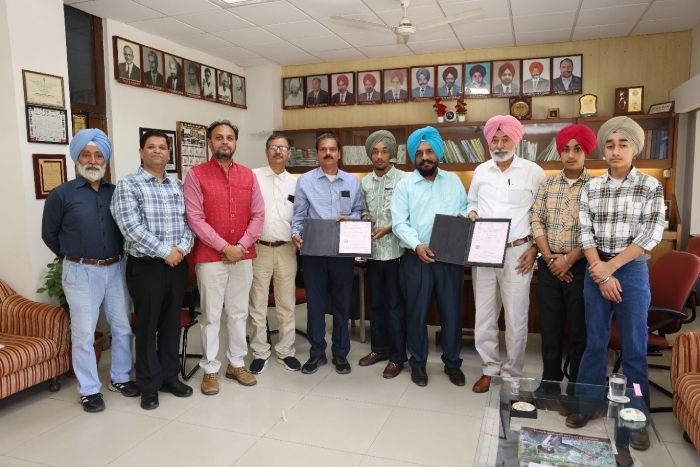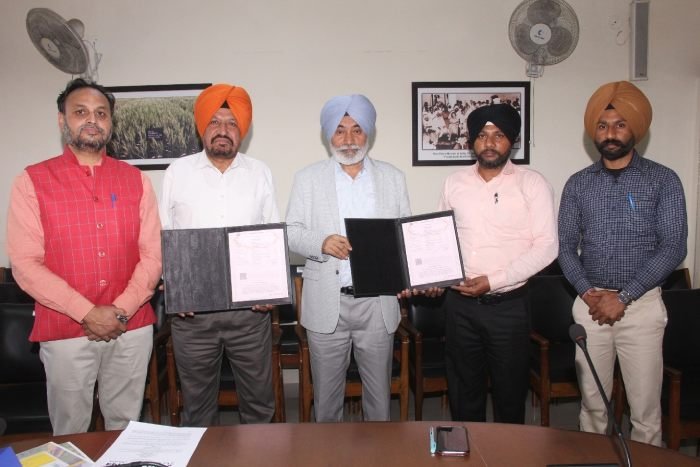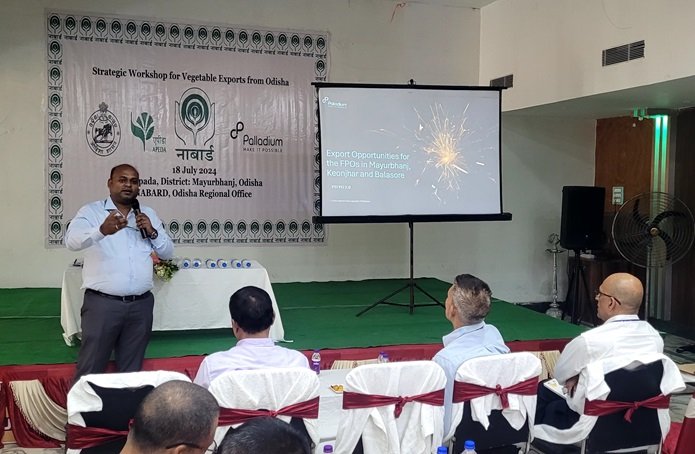PAU and Rajarh Agricultural Works partner for commercialisation of Biomass Incorporator
Biomass Incorporator (Modified Mould Board Plough with Clod Crusher) simultaneously performs the function of mould board plough along with breaking big soil clods.
Punjab Agricultural University (PAU), Ludhiana, inked a pact with Rajarh Agricultural Works, Mullanpur (Ludhiana) for the commercialisation of Biomass Incorporator. Dr Ajmer Singh Dhatt, Director of Research, PAU, and Gurdeep Singh signed the agreement on behalf of their respective organisations. Dr Mahesh Kumar, ADR (Agri Engineering); Dr Khushdeep Dharni, Associate Director, Technology Marketing & IPR Cell; Dr Mahesh Kumar Narang, Head, Department of Farm Machinery & Power Engineering; Dr. Rohinish Khurana, Professor and Dr. Aseem Verma, Scientist, Department of Farm Machinery & Power Engineering were also present on the occasion. Dr. Ajmer Singh Dhatt congratulated the Department of Farm Machinery & Power Engineering for the commercialisation of the technology.
Dr. Aseem Verma shared that PAU has been granted a patent for this machine by the Controller of Patents, Government of India. He added that Biomass Incorporator (Modified Mould Board Plough with Clod Crusher) simultaneously performs the function of mould board plough along with breaking big soil clods. This reduces the number of secondary tillage machinery operations needed for seedbed preparation. It can also be used to incorporate chopped green manure/biomass into the soil for improvement in soil health. The machine can be operated with 50 and above hp tractors. The field capacity of the machine is about 0.70 acres/h at a forward speed of 3.5 km/h. The soil pulverization index with the machine is 9.0-9.7 mm whereas for conventional mould board plough, it is 20.7-21.10 mm. The mixing index or bury efficiency (for green manuring) is 94.9-98.8 per cent.
Dr Khushdeep Dharni stated that PAU is striving hard to disseminate the outcome of its research to relevant stakeholders at the ground level. Technologies developed by PAU are quite popular and are being spread across the country through the process of commercialization.
Biomass Incorporator (Modified Mould Board Plough with





